“I look away and keep walking,” Evie says. “Not because it’s two guys, but because this is New York and I mind my own business. Plus, PDA is gross, no matter who’s doing it.” Then, before she can stop herself, she throws the question back. “Are you gay? Or is this because of” — she gestures towards the surface of the desk — “all the compromising photos?”
Evie internally cringes as she realizes what she’s done. She’s upset the implicit power balance of the interview and let her mouth run away with her because Misha is interesting, unexpectedly so, and she wants to find out what his deal is. By interviewing him. Good one. But still, she reasons, if he’s going to ask invasive questions, he should be willing to answer them, too.
She is brought back into the room by a snort of amusement from Misha. “Yes,” he answers, unhelpfully. “And I’m bi, actually. Next: are you religious?”
Play dumb, says Evie’s internal voice. Tone it down, or he’ll never hire you. “No. My grandparents are big-time Catholic. My mom and dad less so, me not at all. I can still recite a ton of scripture, though it’s mostly from comp-lit courses in college.”
“Are you superstitious? Ghosts and things like that?” Evie rolls her eyes. “I mean, I have a lucky poker chip, and I read my horoscope, but I don’t believe any of it.
Well… I don’t rationally think ghosts and things like that exist, but I’d be lying if I said I wasn’t afraid of the dark.” Misha’s expression never changes. “Hm,” is all he says, and Evie can’t tell if she’s making a good impression, or talking herself out of a job.
“Last question, Evie. What’s the strangest thing that ever happened to you?” Misha asks.
Evie thinks. Misha is still watching her. She begins to stutter a half-dozen things, then stops herself, as every story she’s about to tell either involves bad-mouthing previous employers or making herself look dangerously irresponsible. She shakes her head. “I can’t think of anything,” she mumbles. “I guess I’m very dull.”
The silence stretches across the room like a heavy snow, cold and suffocating.
“I very much doubt that,” Misha says, soft and low. “But even so, I don’t recommend seeking strange things out. You’re right to be afraid of the dark.”
Evie immediately, furiously rejects Misha’s casual world-weariness, which only serves to rub in her face how much her own life hasn’t even gotten off its launch pad yet. She stands up and stalks over to the window, looking down to the cars and pedestrians hurrying about like hot ants under the midday sunshine far below. The window is heavily polarized, dimming the intensity of the light and leaving New York a soundless pantomime at her feet.
Behind her, she can hear Misha drag his desk chair out and sit down in it. She turns around to see him stifling a yawn. She wants so badly to say sorry I’m keeping you up, pal, but on the very slim chance she hasn’t blown this interview to smithereens already, she holds fast to her discretion.
“Do you have any questions for me?” he says, slumping back in his chair.
“Yes,” Evie says. “What do you investigate?” Still-simmering anger gives her the courage to meet his pale eyes with her plain brown ones.
“Relationships. Marriages, affairs, things like that,” Misha says, waving one hand vaguely in the air as he stretches his legs out beneath the desk. “There are tons of agencies and apps and services to bring people together. I do the opposite.” He smiles, predatory. “I tear them apart.”
“Is that… legal?” Evie frowns.
“Yes,” Misha says. “In an obeying the letter, but not the spirit, way.”
“Is it moral?”
Misha shrugs. “Not often. But the cases I take mainly involve the super-rich.” He tips his head back and lifts one hand to point lazily up to the ceiling, to the lawyers’ offices several floors above them. A wry smirk begins to pull at the edges of his lips. “No-one else can afford them.” He looks at Evie, his expression oddly sincere. “And I don’t harm anyone who doesn’t deserve it.”
“Oh, and you get to decide?” The words are, as usual, out of Evie’s mouth before she can stop them. So much for playing dumb.
“Yes, I do,” Misha replies, soft and final as he rises, no doubt to dismiss her. “Just as a journalist chooses who to write about.” He gestures to the door. “Now, if you don’t have any more questions?”
Evie knows she’s blown it; flunked whatever test he was giving her. So she asks her last question, because there’s nothing left to win. It’s the oldest question in the world: “Why?”
Misha arches an eyebrow.
Evie continues. “People like you don’t normally turn against their own kind.”
“Excuse me?” Misha says, an edge of command creeping into his tone.
“The rich. You come from money. A lot of it. It’s in every movement you make. It’s hanging all over your walls. That’s a real Franz Kline out there, isn’t it? I thought it was fake until I came in here and saw that.” Evie points at the Christopher Wool RUN DOG RUN painting. “I worked the cocktail party at the auction house’s sale preview a couple years ago. I remember staring at that painting, fascinated by how sometimes it was just words on a canvas and how sometimes it would dissociate into nothing but shapes and patterns.” She looks right at Misha. “I remember what it cost.”
She doesn’t regret it. For the first time in the interview she feels like she’s standing on her own two feet, strong and sure. She knows she’s on to something, and it’s been eating at her since she first saw Misha: why is a ridiculously handsome rich guy slumming around doing divorce investigations for a bunch of stuffy lawyers?
Misha is just gazing at her, head tilted, face a quiet mask. “Huh. I don’t remember you, from that preview.”
“I was the help,” Evie says. “You’re not supposed to remember us.”
“Still,” Misha says. He indicates the door again. “Thank you for your time, Miss Cross. It was very interesting, meeting you.” His expression is still shut down, melancholy, and Evie feels something sharp in her chest that she was the cause of it.
“When I get nervous, sometimes I…” she says, pausing with her hand on the door. She takes a last look at this impossible man and realizes that he is the strangest thing ever to happen to her, and in a moment, she will leave and never see him again. “Really, I’m sorry. I was making assumptions and that was wrong of me.”
“On the contrary. You were correct,” Misha says, as he looks down at her. Evie feels the warmth of him as he reaches past her to turn the doorknob. Just before he opens the door, he leans down to speak softly into her ear.
“But you should be careful, Miss Cross. In my experience, people easily forget wrong answers. But seldom do they forgive right ones.”

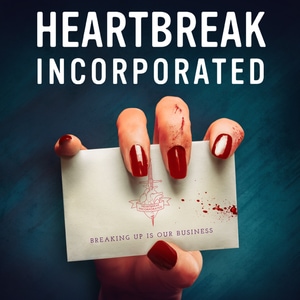

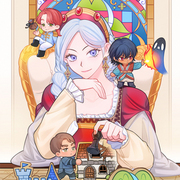


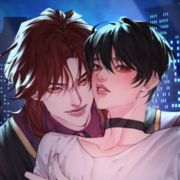



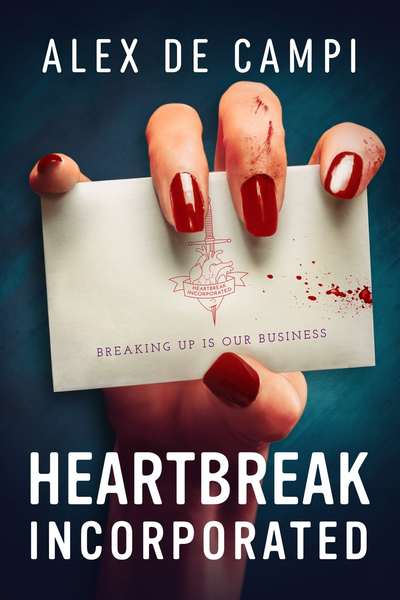
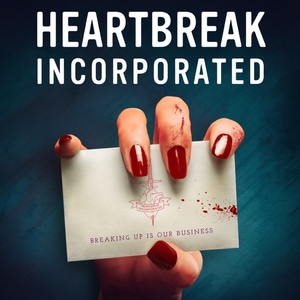
Comments (5)
See all